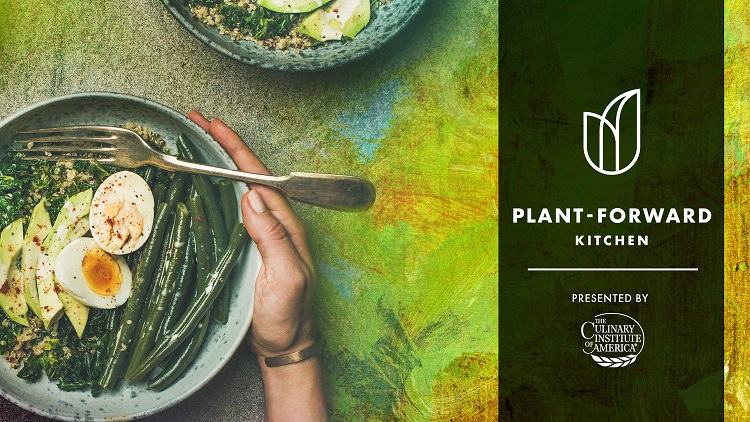Greetings! Welcome back to the blog series “On the Road with RDs,” where we invite you to follow along with our Registered Dietitians as they visit venues, teach communities, and continue their education in the wide world of nutrition. This entry is from Executive Chef Rob Coutu. He may not be an RD, but he’s a key part of the Nutrition Team and is responsible for keeping our recipes and menus in tip-top shape and on trend.
The Culinary Institute of America held its 2021 Global Plant-Forward Culinary Summit virtually. For three days, I sat in on demonstrations featuring chefs from around the world. They discussed approaches to plant-inspired menus, preparation techniques, and agricultural considerations.
Eric Ripert, chef and co-owner of Le Bernardin in New York, talked about celebrating the beauty of vegetables by starting with a single ingredient and working toward a final product, rather than working backward from the end vision. Narda Lepes, chef and owner of Narda Comedor in Argentina, showed how to create appealing vegetables and plant-forward dishes in a country with meat-heavy cuisine. The Mushroom Council and Lentils.org employees led sessions about incorporating mushrooms and lentils into plant-based dishes.
Peter Jacobsen, a produce farmer in California whose clients include The French Laundry and SPQR, has a unique approach to preparing fruits and vegetables. He suggested preparing produce the same way as butchering meat. Produce has both prime cuts, which can star on a plate, and trims, which can be ingredients in purées and sauces. This allows creative and complete use of each item, from root to stem. He also emphasized the importance of seasonality in produce selection, as well as appreciating ugly produce for its freshness and personality.
A large part of the summit was dedicated to honoring food sovereignty, defined as people’s right to fresh, culturally appropriate foods produced through food and agricultural systems that they create and control. Lois Ellen Frank, a chef at Red Mesa Cuisine in New Mexico, expressed the importance of revitalizing heritage and ancestral cuisines with new cooking techniques, while still paying homage to the land and taking only what’s needed. Leaders from Oakland Avenue Urban Farm in Michigan and Glynwood Center for Regional Food and Farming in New York shared ways to support farming programs by providing education and resources about growing fresh produce in environmentally, economically, and culturally sustainable ways.
My main takeaway from this event is that the dining experience begins way before food is served and ends long after the meal is finished. The time and care that go into growing produce are crucial parts of a dish’s story, and the way a meal makes you feel afterward defines that experience. The summit inspired me to create more plant-forward recipes for our community members to enjoy!








